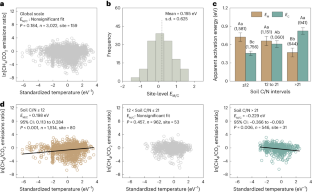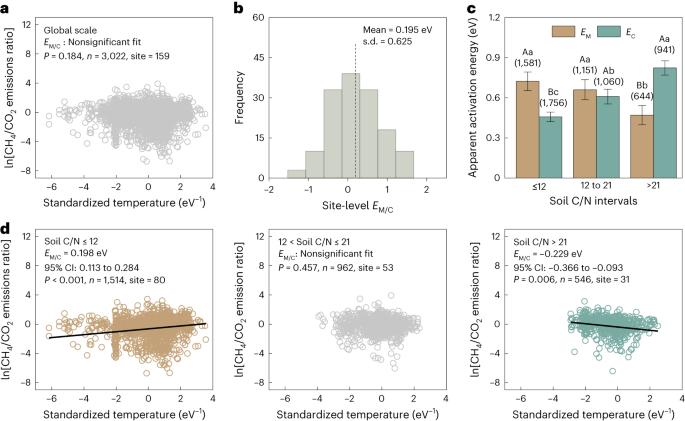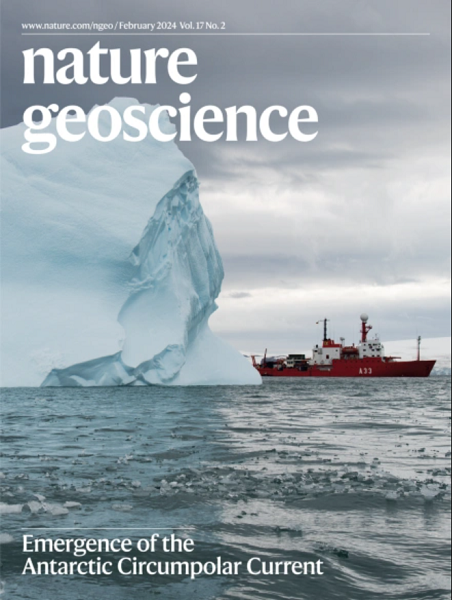Relative increases in CH4 and CO2 emissions from wetlands under global warming dependent on soil carbon substrates
IF 16.1
1区 地球科学
Q1 GEOSCIENCES, MULTIDISCIPLINARY
引用次数: 0
Abstract
Compelling evidence has shown that wetland methane emissions are more temperature dependent than carbon dioxide emissions across diverse hydrologic conditions. However, the availability of carbon substrates, which ultimately determines microbial carbon metabolism, has not been adequately accounted for. By combining a global database and a continental-scale experimental study, we showed that differences in the temperature dependence of global wetland methane and carbon dioxide emissions (EM/C) were dependent on soil carbon-to-nitrogen stoichiometry. This can be explained mainly by the positive relationship between soil organic matter decomposability and EM/C. Our study indicates that only 23% of global wetlands will decrease methane relative to carbon dioxide emissions under future warming scenarios when soil organic matter decomposability is considered. Our findings highlight the importance of incorporating soil organic matter biodegradability into model predictions of wetland carbon–climate feedback. Soil carbon substrates affect how methane and CO2 emissions from global wetlands change in response to climate warming, according to global analyses of temperature sensitivity of wetland carbon emissions.


全球变暖条件下湿地甲烷和二氧化碳排放量的相对增加取决于土壤碳基质
令人信服的证据表明,在不同的水文条件下,湿地甲烷排放比二氧化碳排放更依赖于温度。然而,最终决定微生物碳代谢的碳基质的可用性却没有得到充分考虑。通过结合全球数据库和大陆尺度的实验研究,我们发现全球湿地甲烷和二氧化碳排放(EM/C)的温度依赖性差异取决于土壤碳氮比。这主要是由于土壤有机质可分解性与 EM/C 之间存在正相关关系。我们的研究表明,如果考虑到土壤有机质的可分解性,在未来气候变暖的情况下,只有 23% 的全球湿地会减少甲烷的排放,而不是二氧化碳的排放。我们的研究结果凸显了将土壤有机质生物降解性纳入湿地碳-气候反馈模型预测的重要性。
本文章由计算机程序翻译,如有差异,请以英文原文为准。
求助全文
约1分钟内获得全文
求助全文
来源期刊

Nature Geoscience
地学-地球科学综合
CiteScore
26.70
自引率
1.60%
发文量
187
审稿时长
3.3 months
期刊介绍:
Nature Geoscience is a monthly interdisciplinary journal that gathers top-tier research spanning Earth Sciences and related fields.
The journal covers all geoscience disciplines, including fieldwork, modeling, and theoretical studies.
Topics include atmospheric science, biogeochemistry, climate science, geobiology, geochemistry, geoinformatics, remote sensing, geology, geomagnetism, paleomagnetism, geomorphology, geophysics, glaciology, hydrology, limnology, mineralogy, oceanography, paleontology, paleoclimatology, paleoceanography, petrology, planetary science, seismology, space physics, tectonics, and volcanology.
Nature Geoscience upholds its commitment to publishing significant, high-quality Earth Sciences research through fair, rapid, and rigorous peer review, overseen by a team of full-time professional editors.
 求助内容:
求助内容: 应助结果提醒方式:
应助结果提醒方式:


